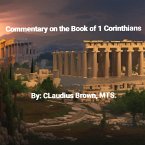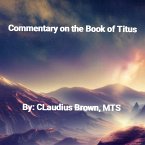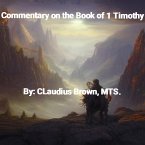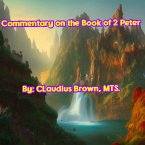One of the unique features of the book of Hebrews is its use of typology. The author employs various Old Testament figures, events, and rituals to foreshadow and point to the ultimate reality of Christ. For example, he draws comparisons between the priesthood of Melchizedek and that of Christ, arguing that Christ is a greater high priest who offers a superior sacrifice. The author also refers to the tabernacle, the sacrificial system, and the Day of Atonement to explain the significance of Christ's death and resurrection.
In addition to its theological depth, Hebrews is also a literary masterpiece. The author uses a variety of rhetorical devices, including parallelism, repetition, and irony, to convey his message. The book is structured like a sermon, with the author alternating between teaching and exhortation. His language is vivid and powerful, and his use of Old Testament quotations and allusions demonstrates his mastery of Jewish scripture.
Despite its many strengths, the book of Hebrews is not without its challenges. Its authorship and audience are uncertain, and its complex theology has led to varying interpretations throughout history. Some scholars have argued that the book was written to Jewish Christians facing persecution in Rome, while others have suggested that it was written to a broader audience of Jewish believers.
The book's warnings against apostasy have also caused concern for some readers. The author encourages his audience to hold fast to their faith and warns them against falling away, but he also acknowledges the possibility of willful sin and rejection of the gospel. Some have interpreted these warnings as evidence that it is possible for believers to lose their salvation, while others have argued that they serve as a call to perseverance and a reminder of the seriousness of sin.
Despite these challenges, the book of Hebrews remains a treasured part of the Christian canon. Its emphasis on the superiority of Christ and the need for perseverance in the face of persecution and temptation continues to inspire and challenge believers today. The book reminds us that our faith is not just a set of beliefs, but a way of life that requires commitment, sacrifice, and endurance. It invites us to trust in Christ's ultimate sacrifice and to live our lives in light of his victory over sin and death.
In conclusion, the book of Hebrews is a complex and profound work of Christian scripture that offers a theological exploration of key concepts such as faith, redemption, sacrifice, and the role of Christ as both priest and sacrifice. Its use of typology, literary devices, and Old Testament quotations and allusions adds depth and richness to its message. Despite its challenges, the book continues to inspire and challenge readers today, reminding us of the ultimate victory we have in Christ and the importance of persevering in our faith.
Dieser Download kann aus rechtlichen Gründen nur mit Rechnungsadresse in A, B, CY, CZ, D, DK, EW, E, FIN, F, GR, H, IRL, I, LT, L, LR, M, NL, PL, P, R, S, SLO, SK ausgeliefert werden.









